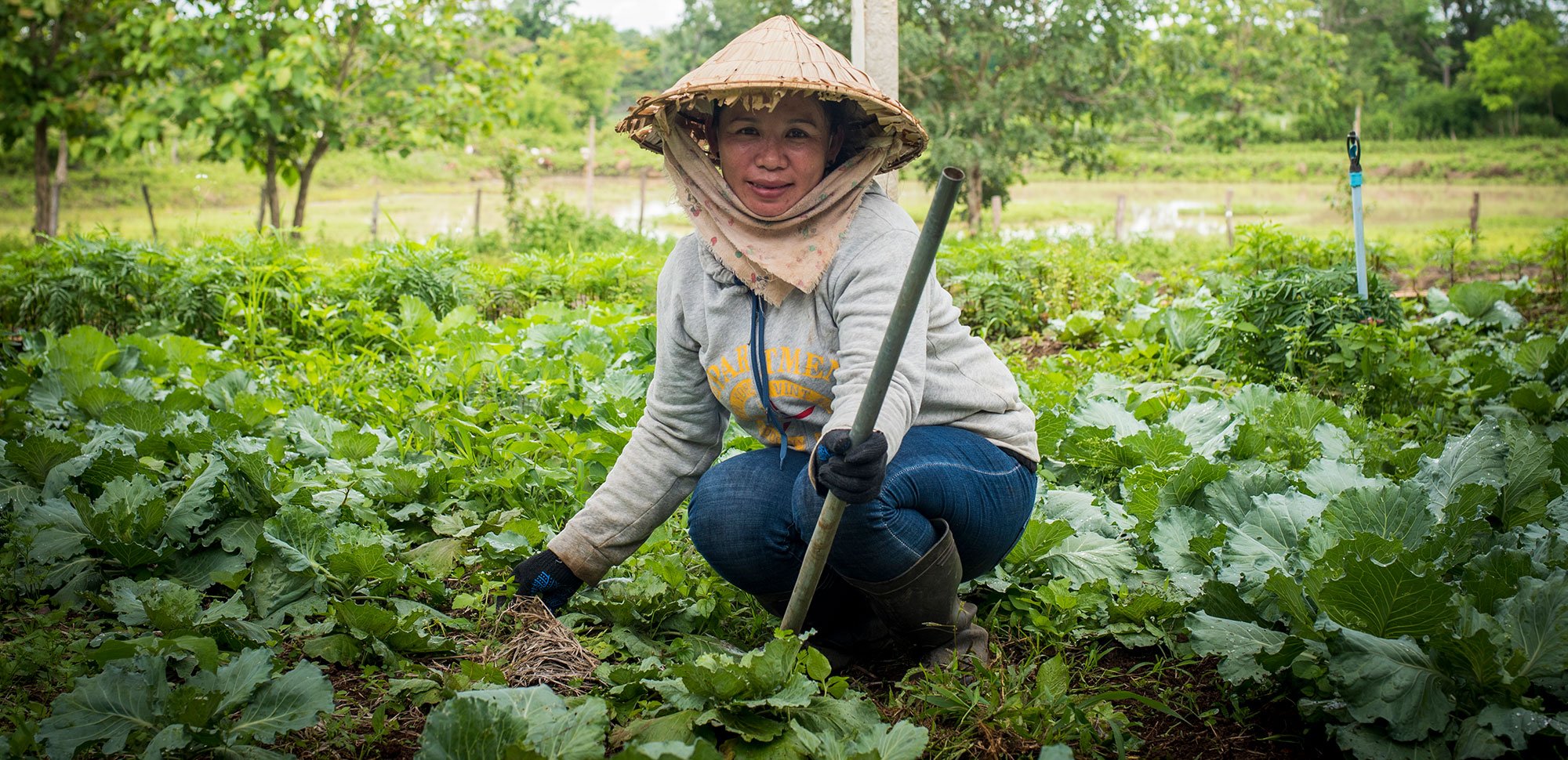Growing opportunity in the face of COVID-19 with climate smart villages
Story


A changing climate can mean the difference between food on the table or going hungry.
In Laos, subsistence farmers face growing water scarcity and seasonal changes in temperature that have impacted their community’s food security, nutrition and health. Add in the effects of the COVID-19 pandemic and the results have been devastating.
“People are scared to go out,” says Noy, a young mother and farmer in the village of Hoi. “Today, we can’t sell at all.”
Without a market for their produce, Noy and her fellow farmers—who already face challenges due to climate change—are now having trouble making money and feeding their families.
It is vital, now more than ever, that we continue to share our skills and knowledge with rural women farmers. Their understanding of climate-smart farming techniques, drought-resistant crops and sustainability will be critical to their ability to survive once the pandemic is over.
“We’re trying to address the problem of food insecurity brought about by climate change,” says Cuso alumnus Jerome Villanueva, now working for Cuso partner International Rice Research Institute as the project facilitator. “It’s about introducing climate smart agriculture technology and practices.”
Rice is one of the main crops in rural Laos, but the type of rice that’s been grown in the past cannot survive drought or flooding. That’s why drought and flood-resistant types of rice have been introduced. And, as Jerome explains, farmers receive much more than climate-resilient rice. “We are training them in different technologies, like small-scale rainwater harvesting to supply their home gardens.”
The growing period for the new types of rice is more than a month shorter than the traditional type, meaning that two crops can be harvested each year instead of one. Not only that, but the resistant seeds can produce double the harvest. This means that families will have a more reliable and sustainable food source regardless of the weather.
You can help support the futures of farmers like Noy by making a donation in her name. In the face of the global COVID-19 pandemic, Cuso’s work is needed now more than ever.